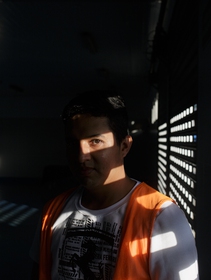
Ecuador’s artisanal fishermen are fighting against the current
A special report from Ecuador’s fisheries delves into the complex reality of being an artisanal fisherman, faced with extortion and environmental collapse.
Lise Josefsen Hermann
Contributor
I’m a freelance correspondent, born in Denmark but my home is (also) in Latin America among the Andes, the Amazon, the hummingbirds and on my beloved mountain Ilaló (near Quito).
My 3 dogs have 3 nationalities.
I’m a yogi, lover of the flower Mimosa Quitensis, and the silence of the mountains. While rock-climbing or losing myself in the pages of an old book is when (at times) I don’t think about the next stories or words that I’m going to write.
I love to challenge myself, to put myself in situations that I’ve never experienced before. Sometimes the outcome isn’t so wrong.
Favorite Quote:
“There’s a crack in everything. That’s how the light gets in.” (Leonard Cohen)
A special report from Ecuador’s fisheries delves into the complex reality of being an artisanal fisherman, faced with extortion and environmental collapse.
We meet the women working to reverse trends of disengagement with studies, normalise motherhood in universities, and counteract gender disparities to improve access to academic careers for Colombian women and mothers.
Three people putting the protection of the planet before themselves. Three powerful stories from Latin America, the deadliest region for environmental activists.
The Amazon became an alternative classroom during the pandemic. Now, the educational forest in Batraja, Bolivia, lives on to teach children and adults the value of nature.
Cerrejon is one of the biggest coal mines in the world for energy production, in the middle of indigenous Wayuu territory. Today they suffer from high rates of malnutrition and disease.
A special report from the Yuqui territory delves deep into the dreams, challenges, joys and sadness of one of Bolivia’s most vulnerable indigenous groups.
One in three women have suffered physical or sexual violence. With contributions from Europe, Africa, Asia and Latin America, we look at how this shadow pandemic affects every corner of the world.
Venezuelan refugees are vulnerable to the worsening outbreak in South America: while coronavirus doesn’t discriminate, it does affect some people more than others.
Indigenous peoples in the isolated region are suffering from poor access to health, with several cities becoming hotspots of coronavirus in the Amazon. Indigenous leaders, health experts and NGOs are calling for international help.
The city of Guayaquil in Ecuador has become the coronavirus epicentre in Latin America, offering a dire warning of what could happen throughout the region. People are dying so fast that bodies are left in their homes, or in the streets, for days.
Areas where the FARC guerrilla used to hold power in Colombia have faced record deforestation. Farmers cut down trees, burn land and plant grass for cows. Because, “what else can we do for a living here in the Colombian Amazon”? An intimate report from the heart of the felled forest in Caquetá.